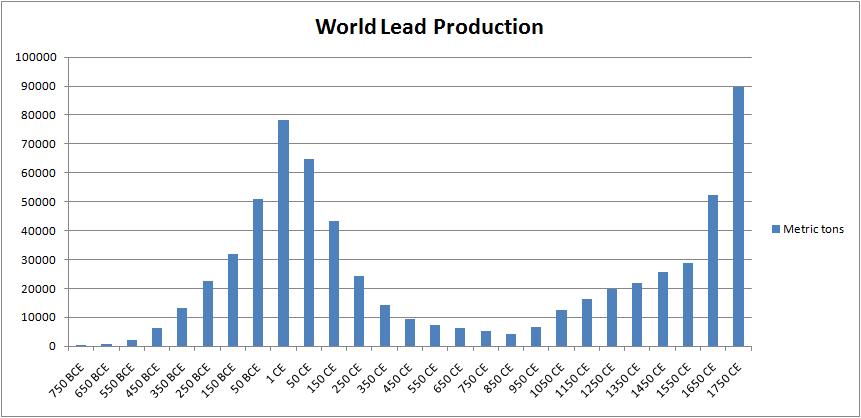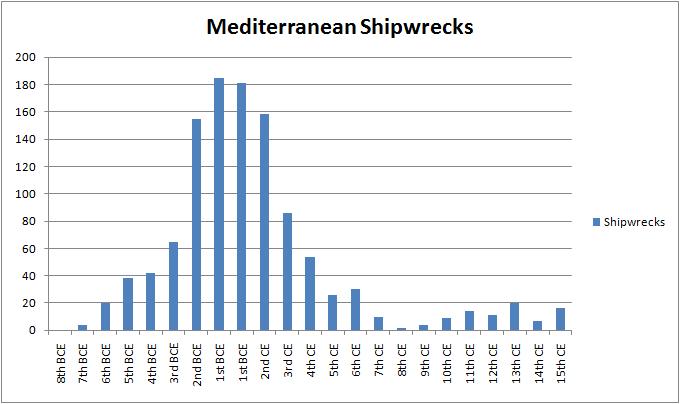Broomstick wrote:
As so often, the tragedy involved involved a number of factors. However, records indicate that harvests of foodstuffs other than potatoes were doing quite well but those crops weren't used to feed the Irish masses, potatoes were, and the landlords exported most of the other crops for profit, or ate them themselves leaving little to nothing for the majority of Irish.
For a multitude of reasons.
1. Cash crops were generally too expensive for the Irish peasants to purchase. Indeed, its the reason why the potato and potato based husbandry such as pigs and buttermilk from animals is the key element in Irish diets.
2. The existence of such cash crops is dwarfed by the amount of food aid sent to Ireland. Remember, after the first two years, the main impact of the famine was not food scarcity, but rather, the inability of the Irish to purchase said food as the traditional economic broke down.
3. Lastly, the data shows that food exports were generally small scale compared to the amount of food aid sent in.
The British aid, such as it was, was also mostly confined to the north and east, areas that were heavily Protestant and Anglophone, and urban. The Gaelic-speaking, Catholic, rural areas pretty much got nothing.
I was under the impression that this was due to adminstrative difficulties, as well as the fact that certain parishes were richer than others and thus better able to engage in charity. But then again, I don't have the library book on hand for reference so I could be wrong, is an online source available?
Again, it wasn't a matter of how important the exported food was to Britain, it was that exporting it removed food from areas that desperately needed it.
And again, the British sent in large amount of food aid .Hence, the importance of exported food somehow playing a critical role in aggravating food scarcity is a propaganda piece, the only argument left is the timing and this is due to market times required to obtain sufficient cereal for Ireland.
The system was set up so that the Irish farmed all sorts of things, but actually subsisted on potatoes. When the potatoes were gone the system did not replace them, leaving the Irish workers nothing to eat even as wheat and other products were loaded onto ships and sailed away.
They did replace it. They attempted to replace it by using the poorhouse to provide employment to Irish, so they could purchase food. American corn replaced the potato and we have examples of just how....... difficult it proved to distribute. Part of the reasons were cultural, the rest was food based. The Irish for example undercooked American meal, thus, suffering indigestion and malnutrition, then there was the debate regarding whether one should distribute cooked meal vs uncooked meal.... although this became unimportant since the soup kitchens as part of an overall relief program only lasted one year of the blight.
The remaining years were replaced by the British poorhouse and economic employment at rock bottom prices, doing extremely hard labour such as roads, while the wages were actually insufficient to purchase an adequate meal. But even so, the blight impact on food scarcity only lasted another two years or so before the remainding, severe dislocation and impact of the famine was caused by the economic impact. Well, that and farmers ate their seed potatoes due to scarcity during this period......................
I mean, we can honestly fault the British for many things here. For example, food relief was severely hampered by ideology, such as the oft repeated statements that they should not hinder private enterprise, well, in the first year anyway. Then there's also the no freeloading Irish mentality, with its impact on the poorhouses and indeed, the soup kitchens with the cooked vs uncooked meal.
Again, during the two years in 1845 to 1847, when food scarcity was the problem, large import of American meal helped relieved the problem of scarcity. The problem was in 1847 and the aftermath, when the utter destruction of the food harvest begun the process of stripping tenant farmers, and the real problem can be blamed on how British aid was structured, the Poor Law and the subsequent actions Irish lords had to take.
British soldiers guarding food exports didn't take place in an environment where food didn't exist. It took place in an environment where food prices were too high and the existing Poor Houses was inadequate. Hell, even the relief works were inadequate as the labourers needed more calories and had to purchase food at dearer prices.
Food subsitution did work in 1846, with American meal although there was a delay due to logistics, but it simply wouldn't have worked in 1848 because by then, the problem was money. And the fault can be placed on British niggardly behaviour in not giving more aid, to what was supposed to be an intergral part of the British homeland.
Let him land on any Lyran world to taste firsthand the wrath of peace loving people thwarted by the myopic greed of a few miserly old farts- Katrina Steiner



